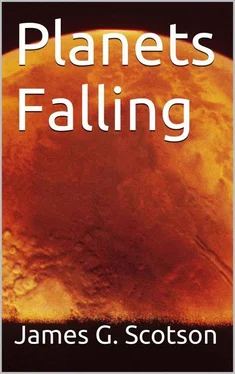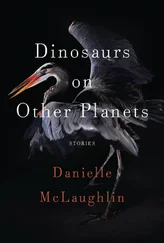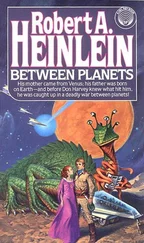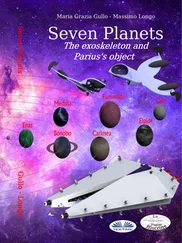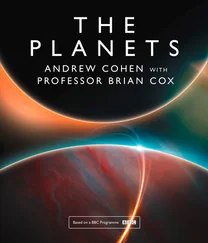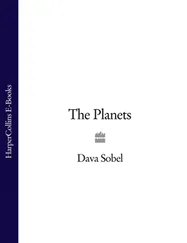With apparent martial law imposed on the colony, most of the inhabitants slowly resumed working and living their lives. Other than the uncertainty of the walls falling away, a semblance of resigned normalcy settled on the researchers and staff. The colony was very much the same as before, but subdued. The bustle of activity at the local haunts vanished with the absence of the tourists and adventure seekers. Many of the residential sectors were eerily quiet — most disturbing was the lack of children playing. Parents kept their brood near safety. Those residents with the wealth and influence to move away had gained access to transports before the directive and moved to other martian colonies or back to take their chances on earth.
Those colonists with roots in the colony — or nowhere else to go — stayed. Most of the stragglers and stranded were scientists. Abroad, the colony was viewed as under investigation for terrorist activity and avoided by travelers plus wary merchant vessels. The media carried the story earthside for a few days but quickly became preoccupied with other baubles: the various wars, diseases, and disasters continually bubbling up on earth.
Neither Fuerst nor Pinchot knew what to do. The company leaders including Holst were clearly attempting to deceive the colonists; no one believed that the wall breaches were caused by explosives. The general theory pinging around the populace was that some lifeless inorganic corrosive — a nasty acid — was used. Even the experienced microbiologists doubted that the holes were caused by a biological agent. If Fuerst and Ferris were to implicate an outbreak of Tash’s superbug, panic and fingerpointing would ensue. Even Tash, now released from confinement and reunited with his wife and children, was silent about the matter.
So, they all worked. Contrary to their expectations, Holst encouraged the colonists to continue their research and provided them with ample resources — perhaps more than before the incident. Fuerst’s lab was quickly repaired once the damaged sector was declared safe; he dove into his experiments. It was the least he could do to honor Hama’s memory. He and Pinch spent many days and evenings in the subterranean earth room quietly talking about ways to make mars habitable and how to use their lessons to save earth. Within a few months, access to the outside of the colony was re-established. And only a handful of colonists cared.
A year passed. The quality of the coffee improved and life in the colony ramped up. The anniversary of the incident neared and a collective of colonist researchers were planning the first of a series of small experiments outside the domes. Pinch had gathered all the families in celebration. Children were again playing in the tepid martian sun.
Visitors never returned to the colony. The researchers and their support staff had the domes to themselves. Holst assured them it was a new corporate directive to keep research separate from recreation and housing. Although Pinch occasionally wondered about the company’s true intentions, she kept leading her people forward.
That bright day, Ferris spoke clearly and directly to her friends and family. “My dear friends, we’re about to embark on the next phase of exploration.” She paused and relished the attention. “We plan to introduce a series of engineered bacteria and microalgae that can withstand the harsh environment outside and begin to condition the soil for further life. We’re moving beyond the lab incubator and into the real world.”
Applause followed. From the crowd, Ben Pettit, a climatologist shouted, “When’s the baby due?”
Apparently, the first child of Drs. Ferris and Fuerst was beginning to show — a little bump protruded hopefully from her belly.
Chapter 4 – A New Generation
Excerpt from book entitled “A History of the Terra Institute”:
Adam Fuerst became the first Principal of the Institute following a unanimous vote of the founding families. Fuerst was an original colonist of mars and greatly advanced science and engineering approaches in planetary reformation. After the discovery of intergalactic travel during Fuerst’s early childhood, economic interest in mars colonization and exploitation briefly waned.
Corporate focus on building enclosed colonies on the mars surface and exploiting plus terraforming the entire planet was diverted toward exploration of the galaxy for suitable colonization by earth’s expanding population. The scientists thought there should be endless numbers of planets with life that could be exploited and colonized for profit. While earth turned toward the stars, the scientists on Colony 1 of mars continued their ecological and climatological research, training their children to follow similar pursuits. It was during this time that the colony became an autonomous branch company — acting as a consultant to the various exploratory corporations — a move that would prove most profitable to the Institute in the near future.
During Fuerst’s early teen years, contact with the nauron species was established. As with humanity, the naurons were searching for habitable planets, with surprising parallels to those of humans, although the naurons required more aquatic habitats given their amphibious life cycle (link to: nauron physiology). The combined exploratory efforts of the two sentient species yielded a discouraging fact. Life was surprisingly rare in the galactic neighborhood.
It was with this sinking realization that the corporations and the one remaining earth government (link to: Great Intercontinental War) turned toward the small cluster of colonies on mars. The red planet was streaked with green by this time. It was there that Fuerst had spent most of his childhood traveling with his mother between the various domes of the colonies. He was an attentive, brilliant child with broad interests. He excelled academically and learned much from the labs he visited. Memoirs of many of the early Institute founders including biologists, chemists, and geologists mention how inquisitive and insightful he was, as if he had read all the available literature on their subjects.
As an adult, Fuerst’s chosen field was astrobiology. This developing discipline explored how the physics of planets, their moons, and suns influenced planetary life. It was during this time that humans and naurons discovered the first three (other than earth and nauron) of the 31 known planets with life on them (link to: planetary community) and astrobiology found that many of its theories could begin to be tested in space. Many other planets had conditions that seemed appropriate for life. However, to the disappointment of the explorers, life was absent or had long vanished on them. The question posited to Fuerst’s Institute was this: Is it possible to make lifeless planets come to life?
It was Sunday morning on mars and Adam Fuerst always had breakfast with his parents. Pancakes, synth bacon, and steaming coffee sat untouched in front of him. He’d recently been chosen as the leader of the new Institute and by this it meant he was the leader of mars. The colony of researchers now was officially recognized beyond its borders. But with the exception of the new title for the colony nothing was particularly new, except perhaps the expectations of the expanding populations of two intelligent, spacefaring species vying to colonize the galaxy. No real pressure there.
Most of the founding researchers brought there by his mother were raising families. In fact a few were already welcoming a third generation into their world. And a few naurons joined them, their wet skin and enormous eyes never failing to capture the attention of the human children. As was becoming tradition, many of their children elected to stay and learn the craft of science, expanding terraforming into new, exciting realms. Mars was slowly becoming green. What an amazing achievement, he often thought.
Читать дальше
